Search Results
Showing results 541 to 560 of 794

Where Do We Choose to Live and Why?
Source Institutions
In this geography investigation, learners use a nighttime satellite image to observe areas of light across the United States and to identify patterns and spatial distributions of human settlements.

Comparing Sizes of Microorganisms
Source Institutions
In this activity related to microbes, learners create scale models of microorganisms and compare relative sizes of common bacteria, viruses, fungi and protozoa using metric measures: meters, centimete
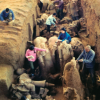
Where in the World is the Terra Cotta Army?
Source Institutions
In this activity, learners find Xi'an, the archaeological area in China where the Terra Cotta Army was discovered, on a map or globe and look more closely at the relationship of the warrior site to ot
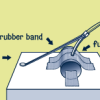
Target Practice
Source Institutions
In this dynamic activity, learners build a catapult that launches projectiles, such as marshmallows.
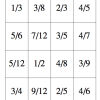
Comparing Fractions War Card Game
Source Institutions
In this math activity, learners practice comparing fractions.
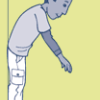
Throw Your Weight Around
Source Institutions
During this activity, learners take part in a variety of tasks which involve moving and balancing different body parts.

Remote Control Roller: Experiment with Static Electricity
Source Institutions
This activity is an investigation of static electricity. What happens when you get "static cling?" Basically, you pile up electrons on one thing, which attracts the protons in something else.

Brain Box (Bag) of Science
Source Institutions
In this neuroscience activity (5th activity on the page), learners explore their sense of touch without using their senses of vision and hearing.
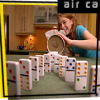
Air Cannon
Source Institutions
In this quick and easy activity, learners build an air cannon "drum" and see what happens when they "shoot" puffs of air at different targets.
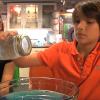
Levity Through Tension: Fun with Water's Surface Tension
Source Institutions
This experiment describes how to create a "dribble bottle" which only leaks water when the cap is unscrewed. The full water bottle has a small hole made with a push pin.

Exploring the Universe: Ice Orbs
Source Institutions
“Exploring the Solar System: Ice Orbs” is a hands-on activity in which visitors investigate a frozen orb, trying to learn about objects hidden inside.
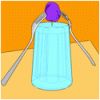
Fork it Over
Source Institutions
This is an activity about center of gravity. Learners will balance a fork on a glass by finding its center of gravity.
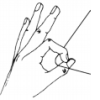
Rotating String Shapes
Source Institutions
In this group activity, learners make multi-sided polygons with string.

Miscibility
Source Institutions
Learners observe a bottle containing water and oil. They are invited to pick up the bottle and mix the contents together.

Oscillating Woodpecker
Source Institutions
In this activity, learners will experiment with the physics of forces - kinetic energy and friction while making a moving toy woodpecker.

Paper Table
Source Institutions
In this design challenge activity, learners use tubes of newspaper to make a table that’s at least eight inches tall and strong enough to hold a heavy book!
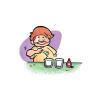
Defining Dissolving
Source Institutions
In this introductory activity, learners discover that sugar and food coloring dissolve in water but neither dissolves in oil.

Train Your Brain
Source Institutions
In this activity, learners play a trick on their own brain to see if the brain can learn to ignore distracting input. Colors and words are used to play the visual trick, known as a Stroop Test.
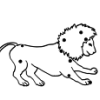
Modeling the Night Sky
Source Institutions
In this two-part activity, learners explore the Earth and Sun's positions in relation to the constellations of the ecliptic with a small model.

What's the Buzz?
Source Institutions
In this activity, learners construct a playable kazoo from inexpensive materials. They will experience how vibration creates sound waves and music.
